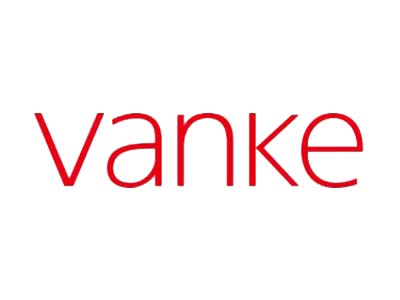VANKE(02202)
Search documents
万科企业(02202) - 海外监管公告-关於万科企业股份有限公司2022年度第五期中期票据宽限期内...


2026-01-27 12:46
香港交易及結算所有限公司及香港聯合交易所有限公司對本公告的內容概不負責,對其準確性或完 整性亦不發表任何聲明,並明確表示,概不對因本公告全部或任何部分內容而產生或因依賴該等內 容而引致的任何損失承擔任何責任。 CHINA VANKE CO., LTD.* 萬科企業股份有限公司 (於中華人民共和國註冊成立的股份有限公司) (股份代號:2202) 海外監管公告 本公告乃根據香港聯合交易所有限公司證券上市規則第13.10B條作出。茲載列該公告如下,僅供參 閱。 萬科企業股份有限公司 董事會 中國,深圳,2026年1月27日 债券代码:102282785 债券简称:22 万科 MTN005 关于万科企业股份有限公司 2022 年度第五期 中期票据宽限期内本息偿付安排的公告 为保证万科企业股份有限公司 2022 年度第五期中期票据 (债券简称:22 万科 MTN005,债券代码:102282785)付息兑付 工作的顺利进行,现将有关事宜公告如下。 於本公告日期,本公司董事會成員包括:非執行董事黃力平先生、胡國斌先生及雷江松先生;執行 董事王蘊女士;以及獨立非執行董事廖子彬先生、林明彥先生、沈向洋博士及張懿宸先生。 * ...
万科企业(02202) - 海外监管公告-万科企业股份有限公司关於2022年度第五期中期票据2026...


2026-01-27 12:43
香港交易及結算所有限公司及香港聯合交易所有限公司對本公告的內容概不負責,對其準確性或完 整性亦不發表任何聲明,並明確表示,概不對因本公告全部或任何部分內容而產生或因依賴該等內 容而引致的任何損失承擔任何責任。 於本公告日期,本公司董事會成員包括:非執行董事黃力平先生、胡國斌先生及雷江松先生;執行 董事王蘊女士;以及獨立非執行董事廖子彬先生、林明彥先生、沈向洋博士及張懿宸先生。 CHINA VANKE CO., LTD.* 萬科企業股份有限公司 (於中華人民共和國註冊成立的股份有限公司) (股份代號:2202) 海外監管公告 本公告乃根據香港聯合交易所有限公司證券上市規則第13.10B條作出。茲載列該公告如下,僅供參 閱。 萬科企業股份有限公司 董事會 中國,深圳,2026年1月27日 * 僅供識別 债券代码:102282785 债券简称:22 万科 MTN005 万科企业股份有限公司关于 2022 年度第五期中期票据 2026 年第一次持有人会议的答复公告 万科企业股份有限公司 2022 年度第五期中期票据 2026 年第 一次持有人会议已形成决议并于 2026 年 1 月 27 日公告,本公司 对相关决议情 ...
万科企业(02202) - 海外监管公告-关於万科企业股份有限公司2022年度第四期中期票据宽限期内...


2026-01-27 12:39
香港交易及結算所有限公司及香港聯合交易所有限公司對本公告的內容概不負責,對其準確性或完 整性亦不發表任何聲明,並明確表示,概不對因本公告全部或任何部分內容而產生或因依賴該等內 容而引致的任何損失承擔任何責任。 CHINA VANKE CO., LTD.* 萬科企業股份有限公司 (於中華人民共和國註冊成立的股份有限公司) (股份代號:2202) 海外監管公告 本公告乃根據香港聯合交易所有限公司證券上市規則第13.10B條作出。茲載列該公告如下,僅供參 閱。 萬科企業股份有限公司 董事會 中國,深圳,2026年1月27日 於本公告日期,本公司董事會成員包括:非執行董事黃力平先生、胡國斌先生及雷江松先生;執行 董事王蘊女士;以及獨立非執行董事廖子彬先生、林明彥先生、沈向洋博士及張懿宸先生。 * 僅供識別 债券代码:102282715 债券简称:22 万科 MTN004 关于万科企业股份有限公司 2022 年度第四期 中期票据宽限期内本息偿付安排的公告 为保证万科企业股份有限公司 2022 年度第四期中期票据 (债券简称:22 万科 MTN004,债券代码:102282715)付息兑付 工作的顺利进行,现将有关事宜公 ...
万科企业拟获大股东深圳地铁集团提供不超过23.6亿元的借款
Zhi Tong Cai Jing· 2026-01-27 12:38
万科企业(02202)公布,公司第一大股东(亦是主要股东)深圳市地铁集团有限公司拟向公司提供借款不超 过人民币23.6亿元,用于偿还公司在公开市场发行的债券本金与利息。 ...
万科企业(02202)拟获大股东深圳地铁集团提供不超过23.6亿元的借款
智通财经网· 2026-01-27 12:36
智通财经APP讯,万科企业(02202)公布,公司第一大股东(亦是主要股东)深圳市地铁集团有限公司拟向 公司提供借款不超过人民币23.6亿元,用于偿还公司在公开市场发行的债券本金与利息。 ...
万科企业(02202) - 海外监管公告-万科企业股份有限公司关於2022年度第四期中期票据2026...


2026-01-27 12:36
香港交易及結算所有限公司及香港聯合交易所有限公司對本公告的內容概不負責,對其準確性或完 整性亦不發表任何聲明,並明確表示,概不對因本公告全部或任何部分內容而產生或因依賴該等內 容而引致的任何損失承擔任何責任。 本公告乃根據香港聯合交易所有限公司證券上市規則第13.10B條作出。茲載列該公告如下,僅供參 閱。 萬科企業股份有限公司 董事會 中國,深圳,2026年1月27日 於本公告日期,本公司董事會成員包括:非執行董事黃力平先生、胡國斌先生及雷江松先生;執行 董事王蘊女士;以及獨立非執行董事廖子彬先生、林明彥先生、沈向洋博士及張懿宸先生。 * 僅供識別 CHINA VANKE CO., LTD.* 萬科企業股份有限公司 (於中華人民共和國註冊成立的股份有限公司) (股份代號:2202) 海外監管公告 债券代码:102282715 债券简称:22 万科 MTN004 万科企业股份有限公司关于 2022 年度第四期中期票据 2026 年第一次持有人会议的答复公告 万科企业股份有限公司 2022 年度第四期中期票据 2026 年第 一次持有人会议已形成决议并于 2026 年 1 月 27 日公告,本公司 对相关决议情 ...
万科A(000002) - 关于在交易商协会披露《关于2022年度第五期中期票据2026年第一次持有人会议的答复公告》的提示性公告


2026-01-27 12:32
万科企业股份有限公司 关于在交易商协会披露《关于 2022 年度第五期中期票据 2026 年第一 次持有人会议的答复公告》的提示性公告 证券代码:000002、299903 证券简称:万科 A、万科 H 代 公告编号:〈万〉2026-014 本公司及董事会全体成员保证公告内容真实、准确和完整,没有虚假记载、误导性 陈述或者重大遗漏。 万科企业股份有限公司(以下简称"公司")在中国银行间市场交易商协会 网站(简称"交易商协会",www.nafmii.org.cn)披露了《关于 2022 年度第五期 中期票据 2026 年第一次持有人会议的答复公告》。根据相关规定,公司同步在巨 潮资讯网(www.cninfo.com.cn)对该公告予以刊登,供参阅。 特此公告。 万科企业股份有限公司 董事会 二〇二六年一月二十七日 债券代码:102282785 债券简称:22 万科 MTN005 一、 会议基本信息 二、 会议议案概要及决议情况 议案一:调整中期票据本息兑付安排的议案。(特别议案) 1 同意本议案的 22 万科 MTN005 持有人或持有人代理人共 0 家, 有效表决权数额为 0,占总表决权数额的 0;反对本议案 ...
万科A(000002) - 关于在交易商协会披露《关于2022年度第四期中期票据2026年第一次持有人会议的答复公告》的提示性公告


2026-01-27 12:32
万科企业股份有限公司 关于在交易商协会披露《关于 2022 年度第四期中期票据 2026 年第一 次持有人会议的答复公告》的提示性公告 债券代码:102282715 债券简称:22 万科 MTN004 万科企业股份有限公司关于 2022 年度第四期中期票据 2026 年第一次持有人会议的答复公告 证券代码:000002、299903 证券简称:万科 A、万科 H 代 公告编号:〈万〉2026-013 本公司及董事会全体成员保证公告内容真实、准确和完整,没有虚假记载、误导性 陈述或者重大遗漏。 万科企业股份有限公司(以下简称"公司")在中国银行间市场交易商协会 网站(简称"交易商协会",www.nafmii.org.cn)披露了《关于 2022 年度第四期 中期票据 2026 年第一次持有人会议的答复公告》。根据相关规定,公司同步在巨 潮资讯网(www.cninfo.com.cn)对该公告予以刊登,供参阅。 特此公告。 万科企业股份有限公司 董事会 二〇二六年一月二十七日 万科企业股份有限公司 2022 年度第四期中期票据 2026 年第 一次持有人会议已形成决议并于 2026 年 1 月 27 日公告,本公司 ...
万科A(000002) - 关于在交易商协会披露《关于2022年度第四期中期票据宽限期内本息偿付安排的公告》的提示性公告


2026-01-27 12:32
万科企业股份有限公司 关于在交易商协会披露《关于 2022 年度第四期中期票据宽限期内本 息偿付安排的公告》的提示性公告 证券代码:000002、299903 证券简称:万科 A、万科 H 代 公告编号:〈万〉2026-015 本公司及董事会全体成员保证公告内容真实、准确和完整,没有虚假记载、误导性 陈述或者重大遗漏。 万科企业股份有限公司(以下简称"公司")在中国银行间市场交易商协会 网站(简称"交易商协会",www.nafmii.org.cn)披露了《关于 2022 年度第四 期中期票据宽限期内本息偿付安排的公告》。根据相关规定,公司同步在巨潮资 讯网(www.cninfo.com.cn)对该公告予以刊登,供参阅。 特此公告。 万科企业股份有限公司 董事会 二〇二六年一月二十七日 债券代码:102282715 债券简称:22 万科 MTN004 二、付息兑付相关事宜 托管在银行间市场清算所股份有限公司的债券,其付息兑付 资金由发行人在规定时间之前划付至银行间市场清算所股份有 限公司指定的收款账户后,由银行间市场清算所股份有限公司在 付息兑付日划付至债券持有人指定的银行账户。债券付息兑付日 如遇法定节假日, ...
万科A(000002) - 关于在交易商协会披露《关于2022年度第五期中期票据宽限期内本息偿付安排的公告》的提示性公告


2026-01-27 12:32
万科企业股份有限公司 关于在交易商协会披露《关于 2022 年度第五期中期票据宽限期内本 息偿付安排的公告》的提示性公告 证券代码:000002、299903 证券简称:万科 A、万科 H 代 公告编号:〈万〉2026-016 本公司及董事会全体成员保证公告内容真实、准确和完整,没有虚假记载、误导性 陈述或者重大遗漏。 万科企业股份有限公司(以下简称"公司")在中国银行间市场交易商协会 网站(简称"交易商协会",www.nafmii.org.cn)披露了《关于 2022 年度第五 期中期票据宽限期内本息偿付安排的公告》。根据相关规定,公司同步在巨潮资 讯网(www.cninfo.com.cn)对该公告予以刊登,供参阅。 特此公告。 债券代码:102282785 债券简称:22 万科 MTN005 关于万科企业股份有限公司 2022 年度第五期 中期票据宽限期内本息偿付安排的公告 为保证万科企业股份有限公司 2022 年度第五期中期票据 (债券简称:22 万科 MTN005,债券代码:102282785)付息兑 付工作的顺利进行,现将有关事宜公告如下。 2 发行人名称 万科企业股份有限公司 债项名称 万科企业股 ...